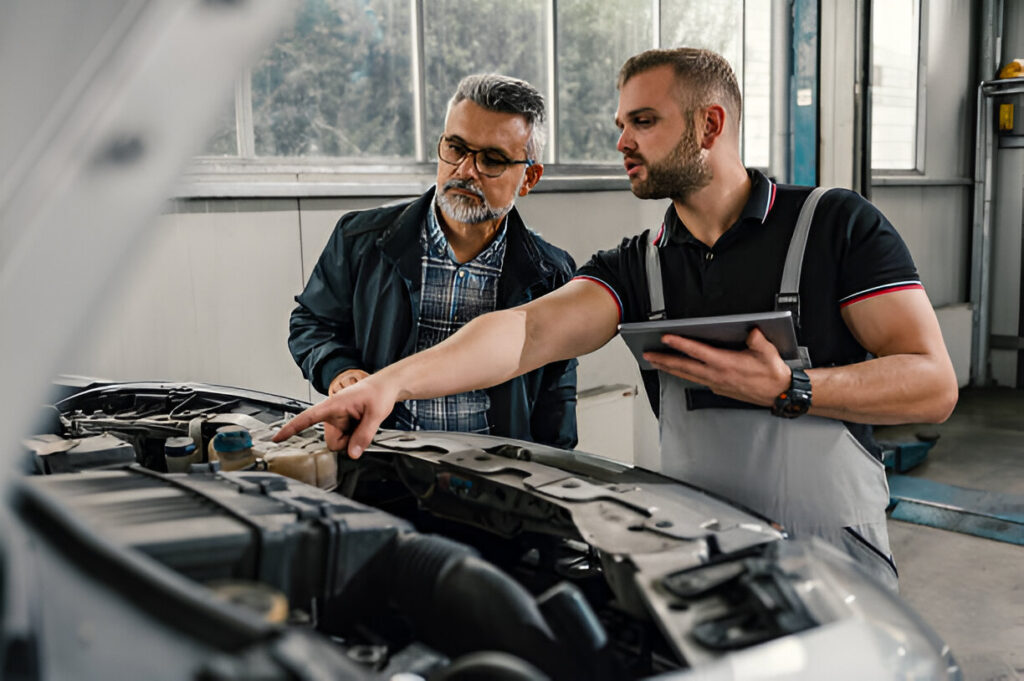Table of Contents
- Benefits of Regular Car Maintenance
- Simple DIY Maintenance Tips
- Understanding Car Fluids
- The Importance of Tire Care
- Finding Reliable Auto Service Providers
- Staying Updated with Car Technology
- Addressing Common Car Issues
- Sustainable Car Maintenance Practices
Benefits of Regular Car Maintenance
Routine car upkeep is more than a task; it invests in your vehicle’s longevity and reliability. By adhering to regular maintenance, you guarantee your vehicle stays in peak condition, significantly lowering the chances of unforeseen failures. Moreover, a well-maintained car runs more efficiently, improving fuel economy and reducing emissions. Adhering to a maintenance schedule is particularly critical during harsh seasons. Winter can be especially tough for vehicles due to its cold and icy conditions. Seeking specialist winter auto repairs prepares your car for these conditions and provides peace of mind, knowing that it is equipped to handle anything the season throws at it. Avoiding mechanical failures through preventive measures minimizes accident risks and boosts vehicle safety.
Simple DIY Maintenance Tips
Performing simple maintenance tasks yourself can save time and money. Establish a routine for checking your car’s oil level using the dipstick, a crucial procedure that prevents engine wear and tear. Replacing air filters is equally manageable. A clean air filter can enhance your engine’s efficiency by helping it “breathe” more effectively, which leads to improved acceleration and overall performance. Familiarize yourself with your vehicle manual, where you’ll find vital information about maintenance intervals and specifications.
Additionally, keep an eye on your windshield wipers and exterior lights. Replace wipers that are not making clear contact with the windshield. A rag to wipe the blades monthly can enhance their effectiveness. Similarly, regularly inspect all lights to ensure they function correctly, as they significantly influence your actions toward other drivers.
Understanding Car Fluids
Car fluids are the lifeblood of your vehicle’s operation, each playing a specific role to ensure smooth functioning. Oil greases the engine’s moving components, lessening friction and avoiding overheating. Coolant, circulating through the engine block, absorbs heat and releases it through the radiator, preventing the engine from overheating. Brake fluid, on the other hand, is vital for a responsive braking system, helping transmit force when the driver applies the brake pedal. To keep your car running efficiently, it’s essential to regularly check these fluid levels and top them up as needed. For example, low engine oil can lead to severe damage, and inadequate brake fluid levels can compromise safety. Understanding how to check and replenish these fluids is invaluable knowledge that empowers you to maintain your vehicle effectively and safely.
The Importance of Tire Care
Taking care of your tires is crucial for maintaining vehicle safety and efficiency. Well-inflated and properly maintained tires improve traction, increase fuel efficiency, and extend the durability of your tires. Inspect tire pressure at least monthly and before extended journeys. Correct alignment and rotation are similarly crucial; they assist in guaranteeing uniform tire wear and a comfortable ride, stopping the vehicle from veering to one side. Engage with resources to find expert advice on tire maintenance practices. They offer comprehensive guides on how to care for your tires, ensuring you are well informed to make the best decisions for your vehicle’s tires. It’s also beneficial to conduct a regular visual inspection of tires for embedded objects or unusual wear patterns that might indicate alignment issues or the need for a replacement.
Finding Reliable Auto Service Providers
Choosing the right auto service provider is just as important as regular maintenance. Look for centers with strong reviews and mechanic certifications, such as ASE (Automotive Service Excellence). These qualifications demonstrate a degree of trust and skill, assuring that capable professionals handle your vehicle. Transparency in pricing and recommendations is also crucial. A reliable mechanic should clearly explain any issues found during an inspection and provide a detailed quote before starting repairs. Inquire within your community for recommendations and feedback on local service centers, as word-of-mouth can be an invaluable tool in identifying trustworthy professionals.
Staying Updated with Car Technology
The landscape of automotive technology is rapidly evolving, introducing innovations that enhance vehicle safety, efficiency, and driver comfort. Elements like automatic emergency stopping, lane-keeping assistance, and entertainment systems are becoming more prevalent in new cars, making it crucial to keep up with the latest developments. Engaging with online automotive forums and tech communities can provide valuable insights and tips for integrating or using new technologies in your vehicle. This understanding can assist you in making educated choices when buying or servicing vehicles, guaranteeing that you utilize contemporary technology to enhance your driving experience.
Addressing Common Car Issues
Understanding and addressing common car problems can prevent minor issues from escalating into major repairs. For instance, recognizing symptoms like unusual noises may indicate the need for urgent mechanical attention. Regularly scanning your car for leaks or potential damping issues can avert more significant malfunctions. While many minor issues can be solved with DIY fixes, such as topping off fluids or tightening loose parts, some problems, like persistent warning lights or transmission issues, require professional diagnostics and intervention. Timely identification and resolution of car troubles reduce repair costs and extend your vehicle life.
Sustainable Car Maintenance Practices
Businesses and consumers alike are increasingly focusing on sustainability, and your car’s maintenance habits can play a part, too. Switching to synthetic oils, which last longer and are less environmentally harmful, can make a significant difference. Recycling used car parts, and motor oil are other ways to lessen your carbon footprint while keeping your vehicle well-maintained. Implementing these practices benefits the environment and your wallet. Sustainable options often translate into long-term savings, as they extend the life of your car and reduce the frequency of replacements and repairs. By making informed choices, you invest in a healthier planet without compromising vehicle performance



